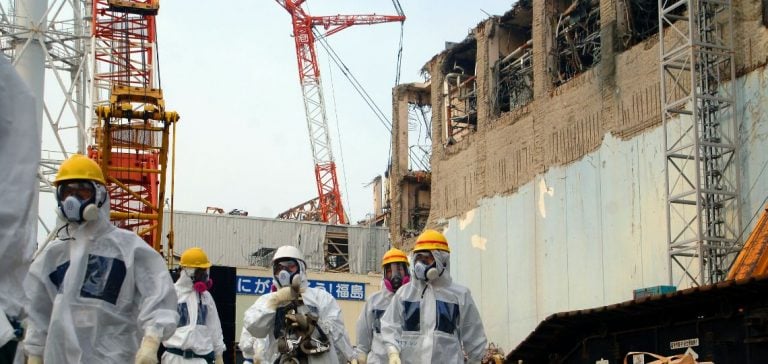Tokyo Electric Power Company (TEPCO), the operator of the Fukushima nuclear power plant, announces the imminent resumption of a crucial operation for dismantling the facility. The removal of highly radioactive material samples, paused due to a technical problem, is expected to resume on Monday, according to Japanese sources.
In September, TEPCO engineers inserted a special device to extract a sample of radioactive fuel and debris located at the core of the plant. However, this delicate operation had to be stopped when the device’s cameras stopped transmitting images to the control center, compromising the safety and precision of the intervention. After replacing the cameras, sampling operations are set to resume.
A major technical challenge in a hostile environment
The dismantling of the Fukushima power plant represents a unique technical challenge. Since the March 2011 tsunami that caused the meltdown of three of the six reactors, access to the most contaminated areas remains impossible for humans. With high radiation levels, only robotic devices can approach the reactors to perform sampling and cleanup operations.
TEPCO must extract approximately 880 tons of fuel and debris to reduce nuclear risks in the region. Although these efforts progress slowly, each extraction step contributes to the objective of gradually neutralizing the facilities.
International implications and environmental controversies
The dismantling of Fukushima is monitored by the international community. Recently, Japan decided to release part of the reactor cooling waters into the Pacific Ocean, a decision contested by neighboring countries, including China and Russia, which temporarily suspended imports of Japanese seafood in response to this decision.
Although Tokyo has reaffirmed the safety of these releases, supported by the International Atomic Energy Agency (IAEA), diplomatic repercussions persist. However, last month, China announced a gradual resumption of its seafood imports from Japan, signaling a relaxation in trade relations.
Local initiatives to revitalize the regional economy
Alongside dismantling operations, TEPCO and other local actors are working to promote agricultural products from Fukushima. For example, Harrods, a luxury department store in London, recently started selling peaches from the region, a symbolic initiative aimed at restoring the reputation of local food products affected by the 2011 accident.
These initiatives reflect the region’s will to recover despite the challenges posed by the nuclear disaster and to gradually regain consumer confidence internationally.






















